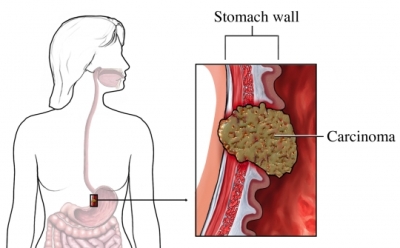
Surgery is the most common method for stomach cancer treatment. Doctors remove a part or all of the stomach, and sometimes lymph nodes near the tumor as well. Chemotherapy is also commonly used. During surgery, drugs that shrink the tumor can be given to the patient. Radiation therapy may also be used to destroy cancer cells. This type of treatment is usually very effective at shrinking the tumor. It can also make surgery a more comfortable process.
Surgery is another option for treating stomach cancer. A gastroenterologist can perform an upper endoscopy to remove the tumor from the stomach. In more advanced stages, surgery is required to remove the entire stomach and connect it to the small intestines. Other treatments include chemotherapy and radiation therapy. Radiation therapy uses high-powered beams of energy to kill cancer cells, while chemotherapy uses chemicals to kill them. While surgery is the most common method for treatment, chemo and radiation treatments may also be used in combination.
In some cases, surgery can cure stomach cancer. If it is early, the tumor can be removed with an upper endoscopy performed by a gastroenterologist. Surgery may also be required to remove the stomach and connect it to the small intestine. In some cases, radiation therapy can be combined with chemotherapy. Depending on the stage of the disease, radiation therapy may be the best option. However, it can be painful and patients should consider all risks and side effects before making a final decision.
Early stages of stomach cancer can be removed with an upper endoscopy, a procedure performed by a gastroenterologist through the mouth. However, if the cancer has spread deeper into the stomach, surgery may be needed to remove the entire stomach or connect it to the small intestine. There are several different treatments for stomach cancer. The most popular are chemotherapy, surgery and radiation therapy.
Surgery is one of the most common treatment options for stomach cancer. The surgeon will remove the tumor early, which may be the only option for stomach cancer patients. Later, chemotherapy and radiation therapy will be used to control tumor growth and prevent the cancer from spreading to other organs. But it is important to note that surgery is not the only treatment option for stomach or esophageal cancer. In some cases, the doctor will use a special endoscope to remove the tumor.
In the early stages, cancer can be removed with an upper endoscopy. During this procedure, the gastroenterologist will remove the tumor using a thin tube. This procedure will remove the tumor, but may cause indigestion and other symptoms. After a biopsy, doctors recommend chemotherapy or radiation for patients with advanced stomach cancer. If chemotherapy or radiation therapy fails, surgery may be performed to repair the affected area.
In addition to surgery and radiation therapy, doctors may use other treatments for stomach cancer. Abdominal surgery can cause significant discomfort and require 2 weeks of recovery. Radiation therapy may also be a treatment option for stomach cancer. Although rare, it can be used to kill cancer cells that have spread to other parts of the body. Besides surgery, radiation therapy is another option for people with advanced cancer.
If the cancer has spread to other parts of the body, it may be treated with radiation therapy, chemotherapy, or surgery. Surgical procedures can be expensive and require a long recovery period. Surgical treatments for stomach cancer can be risky, but for some patients they are the best option. Site vamospormas.org.mx says that the most effective method is one that allows the patient to live life to the fullest. Survival of the patient will depend on the stage of the disease and the severity of the symptoms.
Surgery may be used to remove stomach cancer. Depending on the stage of the cancer, the surgeon may remove part of the stomach or surrounding organs. This is a great option for an early stage of the disease, but surgery does not cure the disease. Symptoms are usually mild and can be treated with a variety of treatments. Some people may experience vomiting and diarrhea after surgery. They may also be given chemotherapy or radiation.